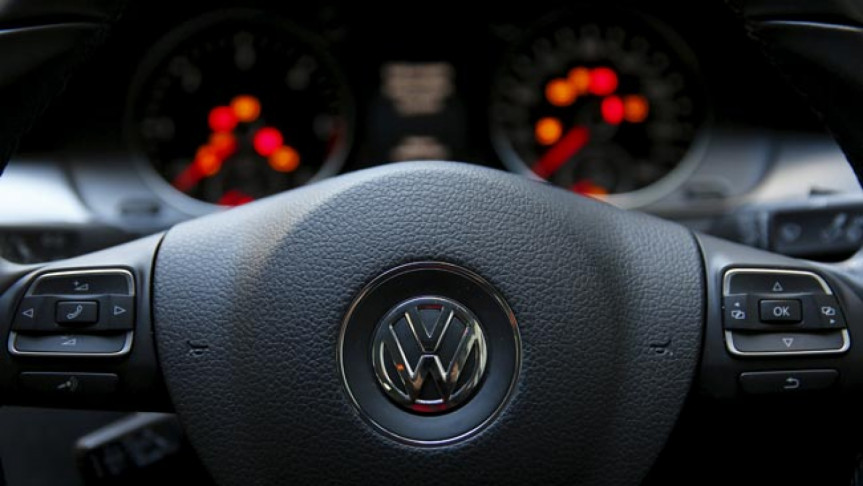VW, like BP, took the wrong chances

After an expensive scandal, Volkswagen is just starting the long process of corporate self-analysis. BP has been through it all. The carmaker can learn an important lesson from the oil major.
BP had two major accidents in just over five years, an explosion at the Texas City refinery in March 2005 and a blowout at the Macondo well in the Gulf of Mexico in April 2010. The oil business is always hazardous, but BP seems to have suffered from something worse than bad luck – a faulty corporate culture.
The U.S. government’s Chemical Safety and Hazard Investigation Board weighed in with a 341-page report on the Texas City disaster. It told of the company’s cost-obsessed management, which skimped on staffing and training. Equipment was poorly maintained. The operator on the day of the accident had worked 29 consecutive 12-hour days. Already inadequate official safety procedures were routinely not followed.
As the CSHIB put it, ‘Beginning in 2002, BP Group and Texas City managers received numerous warning signals about a possible major catastrophe at Texas City.’ But instead of responding to those signals, the bosses kept demanding further costs cuts, including a 25 percent reduction in operating expenses in 2005. Texas City management fought back, and were allowed to cut by only half as much. They did not have to deliver on that commitment, after the explosion killed 15 people and injured 180.
Two years later BP got a new chief executive, who promised to ‘focus like a laser’ on safety. There is no reason to doubt Tony Hayward’s sincerity, but studies of the Macondo disaster suggest that not that much actually changed at BP.
One lesson from BP is that there was no single mistake. In a 124-page report, an expert group sponsored by the Centre for Catastrophic Risk Management at the University of California at Berkeley listed 26 different decisions that contributed to the disaster. Each one was risky, and none was strictly necessary. The people in charge of drilling made the choices they did largely because they wanted to get on with the job, which was well behind schedule and over budget.
There are many differences between the two accidents, and one crucial similarity: BP’s safety culture was inadequate. In the five years since Macondo, it has not been involved in any disasters. Everyone must hope that the ingrained culture may have finally changed.
Volkswagen’s cultural problem isn’t safety related. The investigations into the defeat device which gave faulty emissions-test readings on 11 million cars are just beginning, so it is too soon to draw firm conclusions. However, there are some problems that echo BP. One is the belated recognition of problems that go back years. The deceptive software was first put in cars in 2009.
There is also a tendency to miss obvious questions in the name of getting the job done. The engineering challenge – matching low emissions with good fuel economy – was a central concern to the company. Many of the company’s talented engineers surely wondered why VW’s specialists seemed able to solve this problem so cheaply.
If the company culture was alert to regulatory risks in the same way that it was to, for example, Chinese demand or performance engineering, it is highly unlikely that the cheat would have been hidden for more than five years. But people often do not listen to things that they don’t want to hear.
The right thing for BP to do was to develop a true safety culture. The right thing for VW is to find a passionate love for low emissions. However, these shifts do not come easily, or for free. When one target becomes more important, others necessarily receive less attention.
So what should the trade-off be? Boards of directors, leading shareholders and top executives are inevitably those who have to decide. In these fundamental matters, worthy missives to employees and slick training videos are not enough. Cultures are shaped and changed by hard decisions, like firing people for taking safety risks to meet production targets or telling shareholders that profits will be down this quarter, but safety comes first.
Volkswagen’s new chairman and chief executive will have to make honest relations with pollution regulators non-negotiable. They should start by recognising the scale of the problem. The scandal shows that the urge to dodge the rules is deeply ingrained, perhaps unconsciously. Unless VW can make environmental soundness as fundamental to the company’s identity as making fine and competitively priced cars, it might have to follow BP in the two-time hall of corporate shame.
© Reuters. Edward Hadas is economics editor at Reuters Breakingviews. He joined Breakingviews in both 2004 and 2011, with a year in between at the Financial Times as assistant editor of the Lex column. Before becoming a journalist, he worked for 23 years as an equity analyst in Europe and the United States. He has a website, edwardhadas.com. Follow Edward on Twitter: @edwardhadas

 Edward Hadas
Edward Hadas




